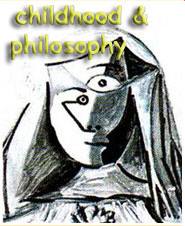to find school: free time as creation of another way of inhabiting the institution
DOI:
https://doi.org/10.12957/childphilo.2017.26765Keywords:
Instituição, tempo livre, conhecimento, igualdadeAbstract
In this article we aim to problematize schools as institutions in order to question current academic output on education that accuses schools of not fulfilling the purposes which legitimize their existence in sociopolitical situation. From a modern point of view which considers education as formation (or training) for social order, school has its parameters established by outside: its curriculum and evaluations, its discourses and practices are defined from social order to school. This close link between school and society, which is based on the presumption that school constitutes a time for formation, creates an unequal relationship between those who teach and those who are supposed to learn. This inequality is, on one hand, caused by the relevance attributed to knowledge in the acting of learning and, in the other hand, by the belief that schooling is an indispensable process for insertion into the social sphere where equal would be achieved. Given the current role that financial capitalism plays into society, it is seen the emergence of the language of learning (BIESTA, 2013a, 2013b, 2013c) in parallel with the increase of criticism that points to the ineffectiveness and inefficiency of schooling. In presuming that school – through its architecture, organization and founding principles – is a given in society, much of current academic output on education is dedicated to the study of school’s purposes, content and methods, distancing themselves from the problematic of school’s very existence. Then, the question at the core of this paper is: “what makes school school?”. Following this purpose, this paper presents an experience of research that has been taken in a course occurred in 2012, in the city of Rio de Janeiro, called “Regarding the (public) school and the ‘educational act’: the experience of inquiry and the verification of equality. Finding/Designing a public school (people’s school/ école du peuple) in/for Rio. Walking and talking as educational research practices”, in order to work on the concept of school as free time, according to the etymological origin of the Greek word skholé. Finally, it is put into question the place given to knowledge in the institution and it is suggested to think equality as a condition to find school.



